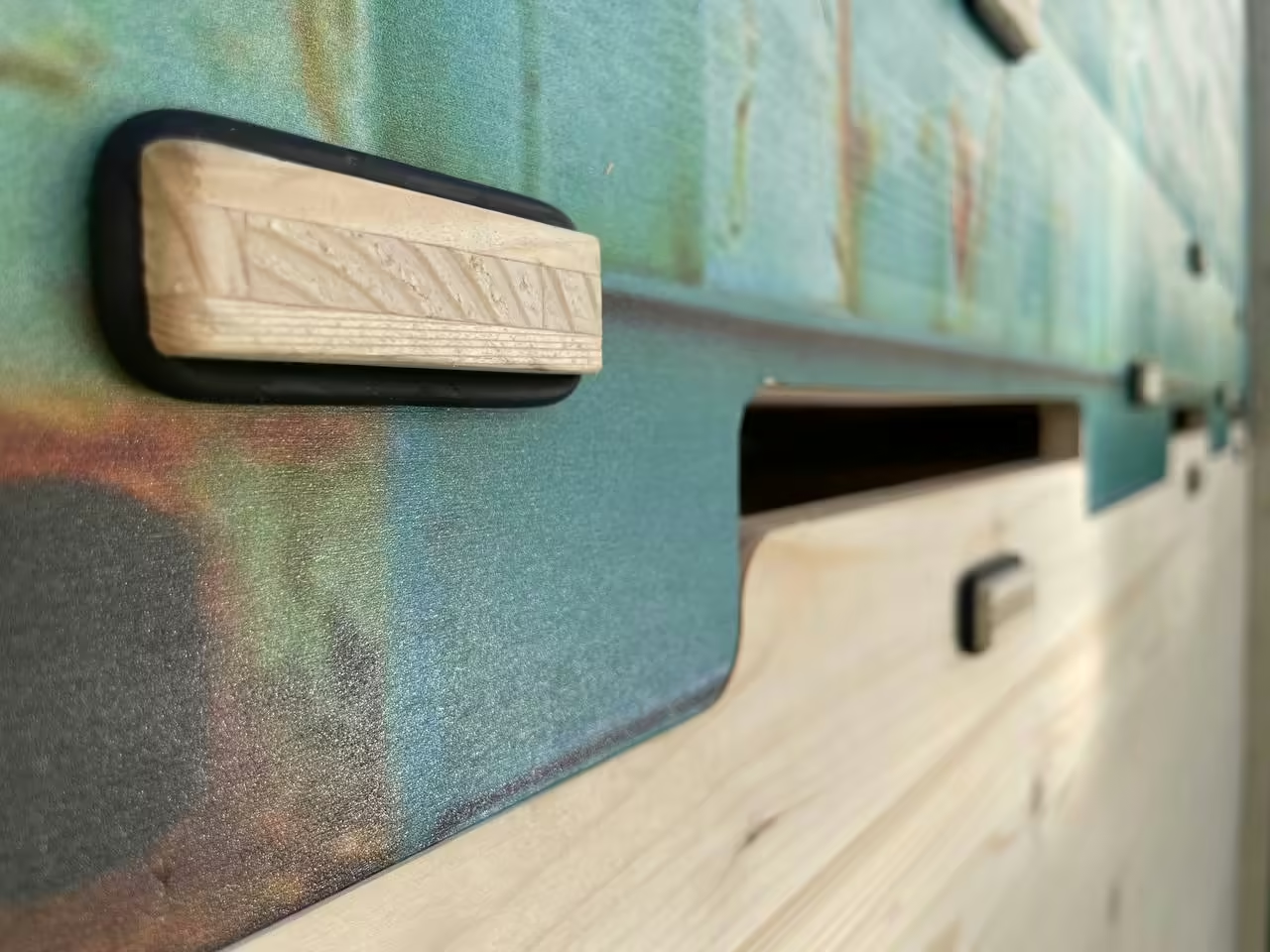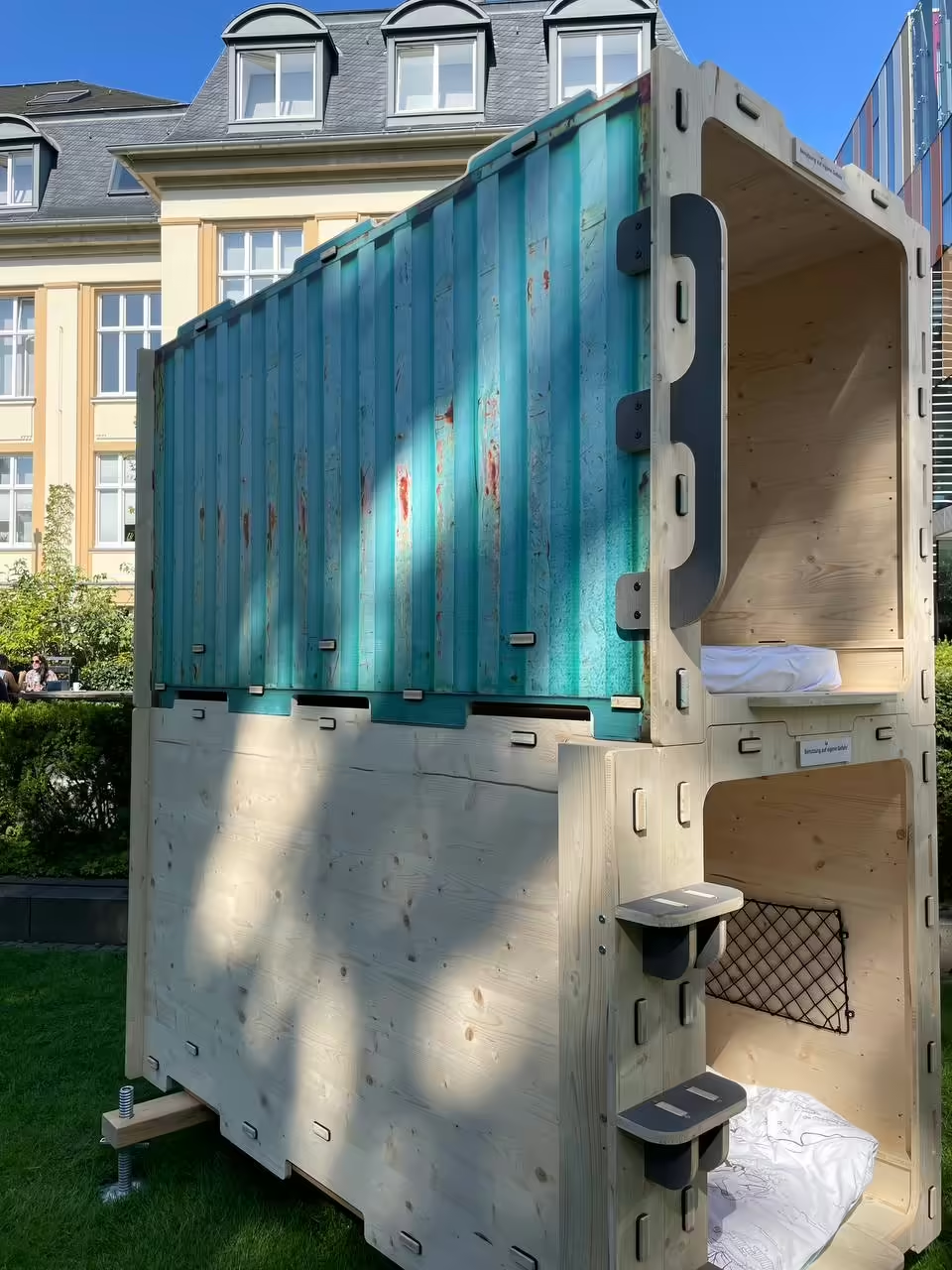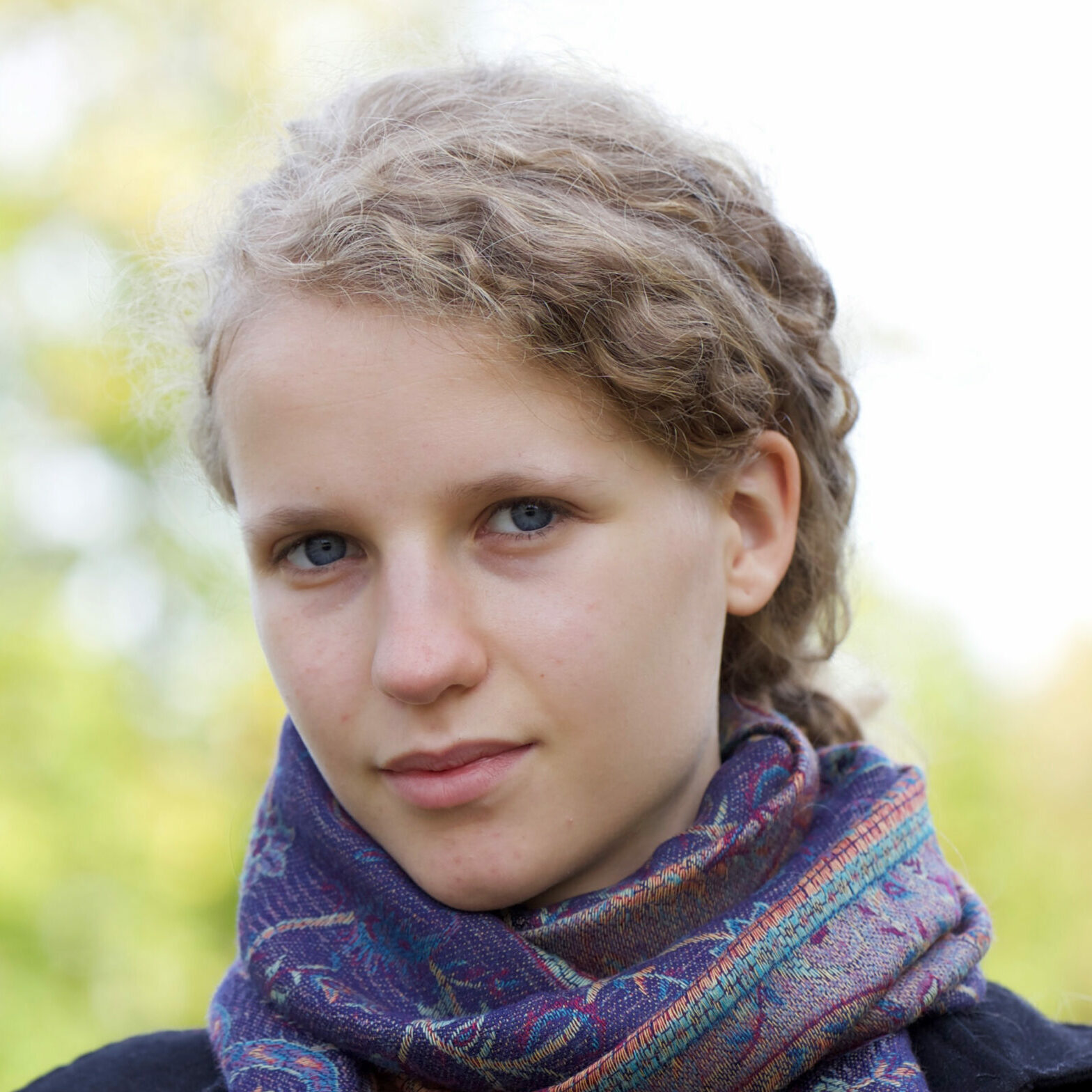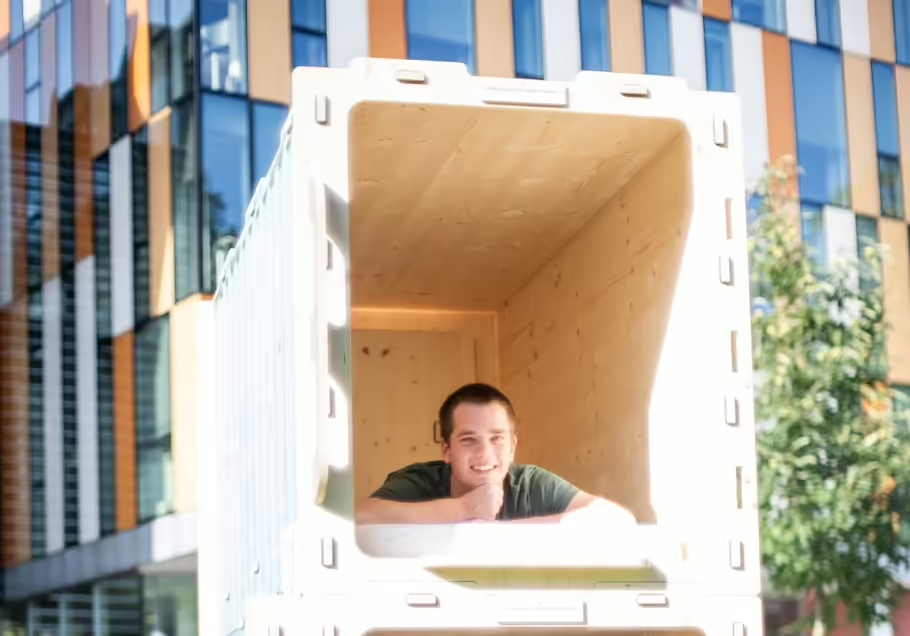We’re excited to spotlight SleepInsideTheBox. This young initiative based in Hamburg is currently bringing comfortable space-saving sleeping pods in hostels and hotels around Europe. We got the chance to exchange with the two young changemakers in the hospitality industry. Excited for learning about new ways to sleep?
Quality sleep is a top priority when traveling. Without enough sleep, you won’t have the energy to discover new cultures and experience adventures. Can you tell us about an experience on one of your recent trips where you slept either particularly well or particularly badly?
We slept particularly well in a hostel in Lima, Peru.
We, two young backpackers, were looking for a cheap alternative to a large hotel room and had prepared ourselves for a night in a dormitory in a bunk bed. However, the hostel was equipped with wooden sleeping cabins. The cabins offered us a safe retreat, privacy and comfort and were also much more space-saving, so an overnight stay was just as inexpensive as in a classic dormitory with bunk beds.
Who are you, what is the name of your initiative and how did you come up with the idea?
From experiences like the one described, we, Elijah Schön and Robin von Knobelsdorff, both active as Ashoka Young Changemakers, developed the idea of founding Sleep inside the Box. Our innovative and sustainable sleeping cabin is specially tailored to the needs of hostels and temporary accommodations.
Sleeping cabins, originally from Japan, are already being used successfully in many countries and are also becoming increasingly popular in Europe. However, we have noticed that this concept is not yet widely used in Europe and that there are hardly any producers. We see great potential to develop it further and that way introduce a sustainable option for beds in holiday accommodations in many countries.
Who are you, what is the name of your initiative and how did you come up with the idea?
From experiences like the one described, we, Elijah Schön and Robin von Knobelsdorff, both active as Ashoka Young Changemakers, developed the idea of founding Sleep inside the Box. Our innovative and sustainable sleeping cabin is specially tailored to the needs of hostels and temporary accommodations.
Sleeping cabins, originally from Japan, are already being used successfully in many countries and are also becoming increasingly popular in Europe. However, we have noticed that this concept is not yet widely used in Europe and that there are hardly any producers. We see great potential to develop it further and that way introduce a sustainable option for beds in holiday accommodations in many countries.

Hotel beds are often not sustainably produced and entire units have to be replaced regularly
What is the current situation in the hotel industry? What are the components of such a bed and where do unsustainable practices occur?
There is a lack of space in many hostels and temporary accommodation. Traditional bunk beds offer a cost-effective solution, but often at the expense of comfort and privacy.
These beds are often not sustainable, as they are rarely made from environmentally friendly materials, are not produced fairly and entire units have to be replaced if they are damaged. Here lies a big unused potential for decreasing both at a time: costs and damage to the environment.
You are dealing with innovative sleeping cabins. What exactly is a sleeping cabin?
A sleeping cabin is a compact, ergonomically designed unit that offers privacy, comfort and safety in a small space.
Our sleeping cabins are modular, stackable and enable efficient use of space. They are a great alternative to classic bunk beds, as they are not only more space-saving, but also offer considerably more privacy and comfort.
Our cabins are manufactured in Bad Bodenteich in Germany by our cooperation partner Werkhaus – an inclusive joinery that has been awarded several sustainability prizes. We use certified FSC spruce wood from Germany or Finland. The patented Werkhaus plug-in system enables quick assembly and easy replacement of components, which ensures long-term, sustainable use.

What are the advantages of sleeping cabins compared to conventional beds?
Here we differentiate between bunk beds and hotel rooms. Compared to bunk beds, sleeping cabins offer more privacy, peace, safety and comfort. They maximize space as they can be set up without gaps and offer additional features such as soundproofing and integrated charging ports.
Regarding big hotel rooms we should question how sustainable it is to waste huge spaces which are primarily used for sleeping. We have developed a solution that saves space while still offering comfort, privacy and security.
“Questioning what beds you sleep in and how big the room you are staying at must be, are great ways to start becoming more sustainably as a traveler”
What tips can you give accommodation providers such as hotels, hostels and youth hostels in terms of bed facilities?
Accommodations should rely on modular solutions such as sleeping cabins to make more efficient use of space while improving the comfort and privacy of guests. Sustainable materials and flexible customization options also increase the attractiveness of the accommodation. Furthermore, investing in a sustainable sleeping cabin based on a closed-loop system makes more sense in the long term than buying damaged bunk bed units.
What do you recommend to travelers who want to spend a sustainable night and dream without a guilty conscience?
Travelers who want to stay sustainably should choose accommodations that focus on environmentally friendly and socially responsible solutions. It is important not only to ensure that consumables are sustainable or certified organic, but also to scrutinize the manufacturing processes behind furniture and equipment.

Lilith Diringer
This interview has been conducted by Lilith. Our CEO is eager to learn everything about sustainable travel and share deep insights with you. Her vision is to make people as well as nature profit from travelling. She wishes you a great trip wherever the next booking takes you and is happy to share details and insights on request: [email protected]

